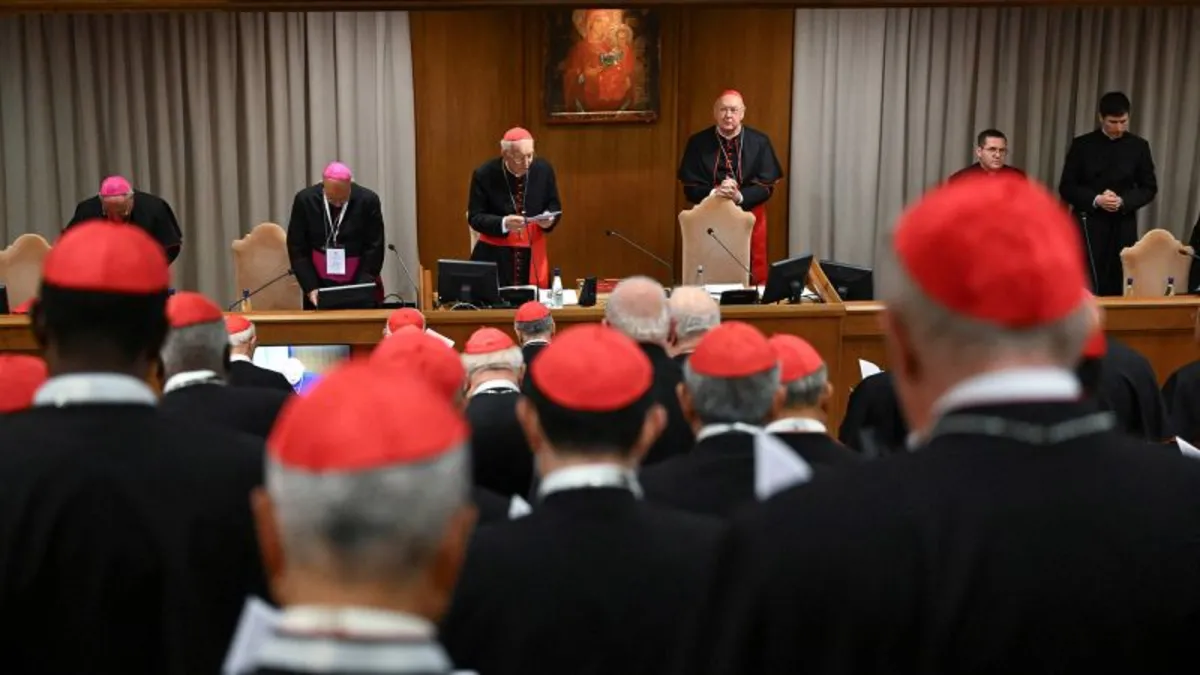
In a significant announcement, the Vatican revealed that the conclave to elect a new leader for the world’s 1.4 billion Catholics will commence on May 7. This decision was made on Monday following the first daily congregation of cardinals since the funeral of Pope Francis.
The upcoming papal election is a crucial event for the Catholic Church, as only cardinals under the age of 80 are permitted to vote. Currently, there are 135 cardinals eligible to participate in the conclave. However, it has been reported that at least one cardinal, Antonio Cañizares Llovera, the former Archbishop of Valencia, will not attend due to health reasons.
As the Vatican prepares for this important event, spokesman Matteo Bruni confirmed that more than 180 cardinals have already arrived in Rome, with over 100 of them being cardinal electors. These congregations serve as closed-door meetings where cardinals discuss pressing church matters and preparations for the conclave, reflecting on the future challenges facing the Church.
During these discussions, significant roles have been assigned to several cardinals. Cardinal Reinhard Marx, Cardinal Luis Antonio Tagle, and Cardinal Dominique Mamberti have been chosen to assist Cardinal Kevin Farrell, the camerlengo responsible for overseeing the temporal goods of the Apostolic See following the death or resignation of a pope.
The general congregations will continue daily at 9 a.m. (3 a.m. ET), with exceptions on May 1 and May 4. On Monday afternoon, Cardinal Giovanni Angelo Becciu withdrew his request to participate in the conclave, despite his previous claims of eligibility. Becciu, once a prominent figure in the Vatican, was ordered by Pope Francis to resign his cardinal privileges amid a financial scandal.
The cardinal electors will cast their votes for the next Bishop of Rome in a highly secretive ballot held in the Sistine Chapel. This historic venue was closed to the public on Monday in preparation for the voting process. The last two conclaves, which elected Pope Benedict XVI in 2005 and Pope Francis in 2013, both lasted two days.
Before the conclave officially begins on May 7, the electors will partake in a Eucharistic celebration known as the Mass Pro Eligendo Papa. This ceremony will precede the oath of secrecy, after which the Master of Pontifical Liturgical Celebrations will declare “extra omnes,” signaling the last moment of public visibility for the cardinals until a new pope is elected.
Notably, four out of five of the cardinals eligible to vote owe their positions to Pope Francis. Of the 135 eligible cardinals, 108 were appointed by him, indicating that approximately 80% of the votes cast in the upcoming conclave will come from those elevated by Francis. This conclave is anticipated to be one of the most diverse in the Church's history, with Francis having appointed cardinals from various developing nations, including Mongolia, Laos, Papua New Guinea, and Mali.
Pope Francis, who passed away at the age of 88 due to a stroke and heart failure on Easter Monday, was laid to rest at the Basilica di Santa Maria Maggiore. His funeral service attracted numerous heads of state, royalty, and thousands of mourners. On Sunday afternoon, cardinals paid their respects at his simple tomb, which bears the inscription “Franciscus,” as large crowds continued to honor the late pontiff.
This story has been updated to reflect the latest developments surrounding the papal conclave.